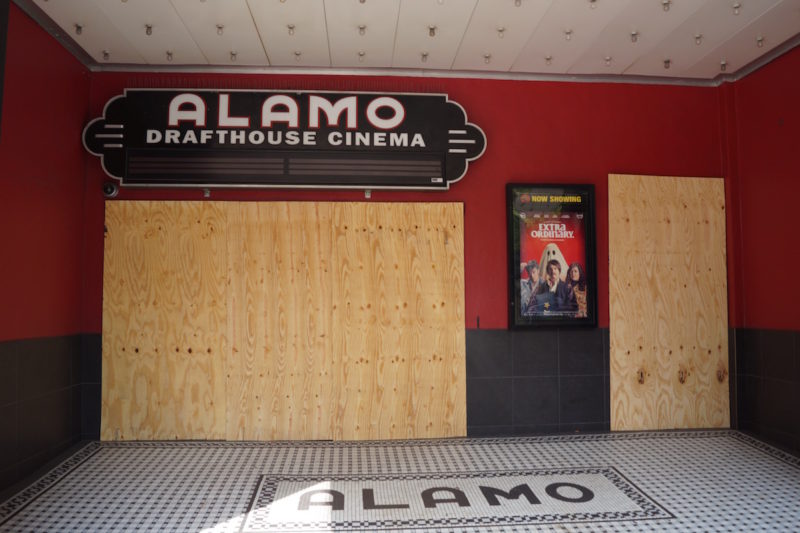By Collin Garbarino, WORLD Magazine
Andrew Thomas owns a small movie theater and a drive-in in the Houston area. Every day he gets emails and messages from people in the neighborhood asking when he will reopen. Thomas has to take many things into consideration, from disparate COVID-19 guidelines coming from different levels of government to the safety and health of his employees and customers.
President Donald Trump’s three-phase plan for reopening the U.S. economy specifically mentions movie theaters as a priority in the first phase. Now theater owners face tough decisions about when they should get back in business and how they will operate in a post-coronavirus world.
Theater chains across the country closed their doors in mid-March, right when the box office historically heats up. AMC, North America’s largest theater chain, likely will declare bankruptcy later this year. Federal stimulus money might ease the pain for some owners, but Thomas said forgivable loans covering payroll won’t solve the problems of an industry with relatively high fixed costs—and the Small Business Administration’s stimulus loan program requires borrowers to spend 75 percent of funds on payroll. “Those numbers are very outside the typical ratio for a cinema business,” he said.
Local and state officials will make most of the decisions about when movie theaters can reopen once the number of new COVID-19 cases begins to decline in their community. According to the White House, even after theaters reopen, they will have to follow safety protocols limiting the number of customers they can serve.
Once local governments give theaters the go-ahead, the industry will face other obstacles, like whether people will feel safe in crowds. A recent survey conducted by the University of Michigan found that more than 60 percent of Americans are primarily concerned about how the coronavirus could affect their health, compared to 13 percent who worry most about isolation and 23 percent who are concerned about finances. Part of the fun of going to the movies is the social aspect—experiencing entertainment as part of a crowd—but that’s the part scaring people right now.
Then there’s the question of whether there be anything for moviegoers to watch.
Studios have postponed the release dates for most summer blockbusters. Daniel Craig’s last appearance as James Bond was supposed to happen this month, but now fans will have to wait until at least November. Disney also decided to push the latest Marvel film, Black Widow, from May to November. Universal’s Fast & Furious 9 was set to open in May, but the studio rescheduled the release for spring 2021. Studios invest $200 million-plus on such tentpole productions, and they aren’t willing to risk releasing them in months that traditionally underperform. Those wary studios have some theater owners worried.
Thomas said what concerns him more is the movie industry, by nature, can’t have a staggered reopening across the country. Theaters across America need major releases to hit at the same time.
If big markets like New York City or Los Angeles lag behind the rest of the country in opening up their nonessential businesses, the studios will continue to delay the openings of income-generating films. Thomas believes that theater closures in any one of a half-dozen key metro areas could cause theaters in other cities to remain shuttered.
The Cinemark chain has enough of a cash cushion that it can open when local regulations allow. It plans to run older movies that appeal to younger audiences who are less concerned about the virus. But for cash-strapped AMC and some smaller operators, reopening might not be worth it. Without a slate of summer blockbusters, ticket sales will be low, and paying to air condition a sparse theater audience might cost an owner more money than keeping the doors closed.
This article was first published by WORLD Magazine on April 21, 2020, and is republished by permission.
